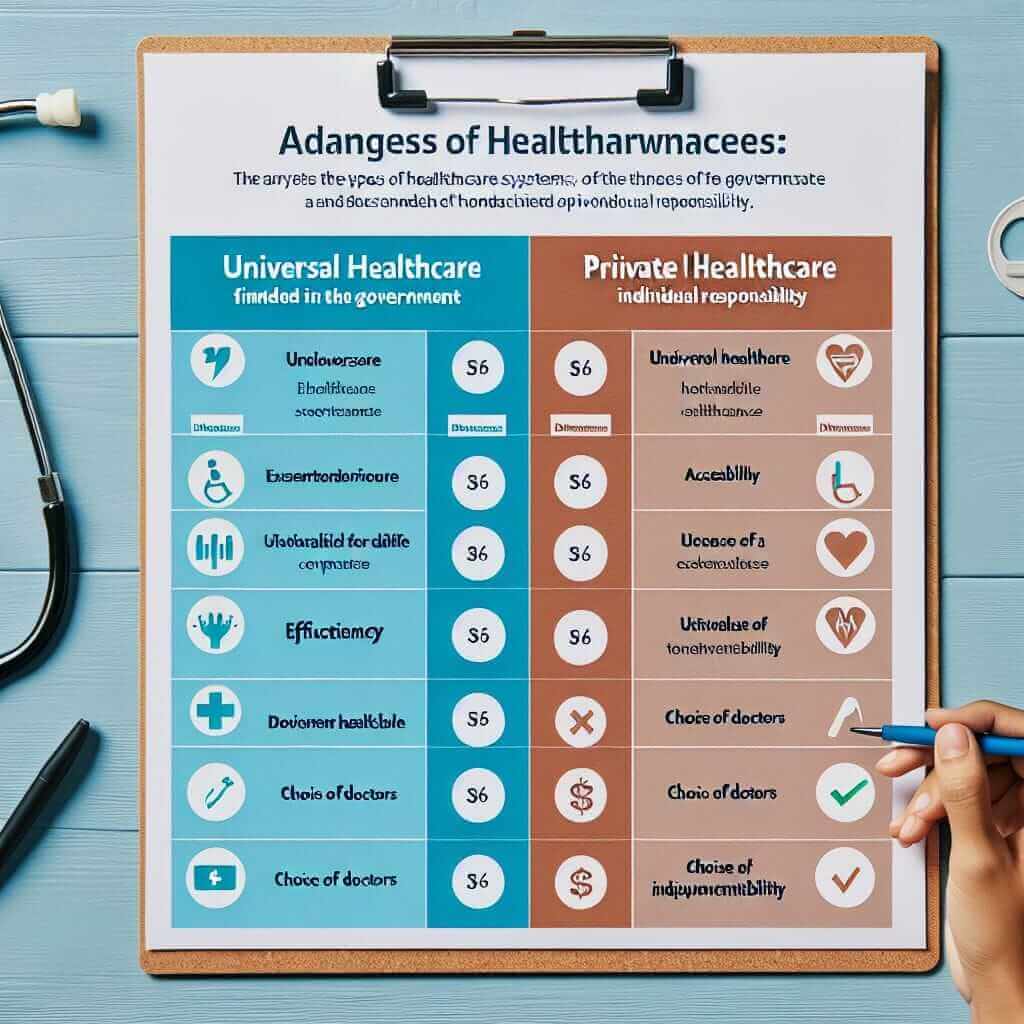The role of government in healthcare is a frequently discussed topic within the IELTS exam. It delves into the responsibilities of governments in ensuring the well-being of their citizens through healthcare provisions. This essay will provide a comprehensive guide on how to effectively approach this topic, offering valuable insights and strategies to achieve a band 8 or higher.
Here are a few potential IELTS Writing Task 2 questions related to this topic:
- Some people believe that governments should provide free healthcare for all citizens, while others think that individuals should be responsible for their own medical expenses. Discuss both views and give your own opinion.
- To what extent do you agree or disagree with the statement that the government’s primary responsibility is to provide healthcare for its citizens?
- In many countries, healthcare costs are increasing. What are the reasons for this? What can be done to solve this problem?
Sample Essay Question:
Some people believe that governments should provide free healthcare for all citizens, while others think that individuals should be responsible for their own medical expenses. Discuss both views and give your own opinion.
Analysis:
This essay question requires you to discuss both sides of the argument regarding government-provided healthcare. You need to:
- Present both sides: Explain why some people believe in free healthcare and why others support individual responsibility.
- Provide your opinion: Clearly state your stance on the issue and support it with relevant arguments and examples.
Sample Essay:
The question of who should bear the primary responsibility for healthcare, the government or individuals, is a complex and multifaceted issue. While some argue that healthcare is a fundamental human right and should be freely accessible to all citizens, others contend that individuals should be accountable for their own medical expenses. This essay will delve into both perspectives before presenting my personal viewpoint.
Advocates for universal healthcare, often funded through taxation, posit that it fosters a healthier and more equitable society. They contend that everyone, regardless of their socioeconomic background, deserves access to quality medical care without suffering financial hardship. By alleviating the financial burden of healthcare, governments can ensure that individuals prioritize their health without the fear of crippling debt. Furthermore, universal healthcare systems often result in preventative care being prioritized, potentially mitigating the need for expensive treatments in the long run.
Conversely, proponents of individual responsibility argue that individuals should be accountable for their own health and financial well-being. They argue that a system reliant on personal responsibility encourages healthier lifestyle choices and promotes a sense of ownership over one’s health. Moreover, they posit that a privatized healthcare system fosters competition, potentially leading to innovation and improved quality of care. However, critics of this approach argue that it can exacerbate existing inequalities, leaving those who are already disadvantaged with limited access to essential healthcare services.
In my view, a balanced approach is essential. Governments should undoubtedly play a significant role in ensuring affordable and accessible healthcare for all citizens. However, promoting individual responsibility through initiatives that encourage healthy lifestyles and personal investment in health insurance schemes is also crucial. A collaborative approach, where both government and individuals share the responsibility, is likely to yield the most effective and equitable healthcare outcomes.

(Word count: 293)
Writing Tips:
- Structure: Use a clear and logical structure. Introduce both sides of the argument, then present your opinion with supporting reasons.
- Vocabulary: Utilize a range of vocabulary related to healthcare, government policies, and economic aspects.
- Grammar: Ensure grammatical accuracy, paying attention to subject-verb agreement, tenses, and punctuation.
- Examples: Provide relevant examples to illustrate your points and strengthen your arguments.
Vocabulary:
- Universal Healthcare: (noun) /ˌjuːnɪˈvɜːrsl ˈhɛlθkeər/ A system where all citizens have access to healthcare, regardless of their ability to pay.
- Equitable: (adjective) /ˈɛkwɪtəbl/ Fair and impartial.
- Socioeconomic Background: (noun) /ˌsoʊsiːoʊˌiːkəˈnɒmɪk ˈbækɡraʊnd/ A person’s social class and economic position in society.
- Financial Hardship: (noun) /faɪˈnænʃl ˈhɑːrdʃɪp/ Difficulty experienced due to a lack of money.
- Privatized Healthcare: (noun) /ˈpraɪvəˌtaɪzd ˈhɛlθkeər/ A system where healthcare services are provided by private companies rather than the government.
- Accountable: (adjective) /əˈkaʊntəbl/ Responsible for one’s actions.
- Exacerbate: (verb) /ɪɡˈzæsərbeɪt/ To make a problem, bad situation, or negative feeling worse.
- Collaborative: (adjective) /kəˈlæbərətɪv/ Involving two or more parties working together.
Conclusion
Mastering the art of writing about the role of government in healthcare requires a nuanced understanding of the arguments, relevant vocabulary, and a structured approach. By following the tips and analyzing the model essay provided, you can confidently tackle this topic in your IELTS exam and achieve a high band score. Remember to practice regularly and familiarize yourself with various perspectives on healthcare systems to excel in this area.
Here are some other related topics you might encounter:
- The impact of technology on healthcare
- The role of private companies in healthcare
- The challenges of an aging population on healthcare systems